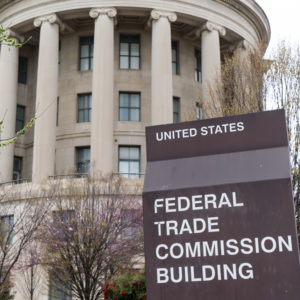COSTELLO: Unchecked FTC Threatens Competition and Innovation Within the Free Market

Competition and innovation within the free market have always been the foundation of the American dream. While the United States has always been known as a country of boundless opportunities, the private sector and middle class are struggling more than ever. Inflation has placed burdens on families, and the government continues to allocate resources to superfluous initiatives that do not benefit the American people.
In the recent midterm elections, voters declared their desire for change and gave Republicans control of the House of Representatives. With Republicans in the majority, there is now an opportunity to level the playing field for American companies. After President Biden’s swift action to implement Lina Khan as chairwoman of the Federal Trade Commission, multiple industries are left to debate their future as Khan’s attempts to regulate the private sector stretches well beyond the rule of law.
We cannot afford to be flatfooted as the private sector continues to break barriers, giving America its strong geopolitical standing. The responsibility resides with Congress to guide government entities through the rule of law. While Congress has made great strides to ensure stability within the competitive market over the last decade, much work remains to be done as innovation within the private sector continues to advance.
Throughout my tenure in Congress, FTC oversight was never an issue of concern. Established in 1914, the FTC operates to uphold laws created by Congress. However, today the FTC is led by Khan, who wields the power of the FTC beyond its intention and instead uses it to promote her agenda.
Khan’s hyper-regulatory agenda began before she was chair of the FTC, calling for antitrust regulatory oversight and promising to undertake “unfair methods of competition.” Khan’s approach to leadership has produced lackluster results, primarily due to an agenda that stifles the free market based on her personal beliefs and ideology.
Khan’s most egregious transgression targets the private sector, claiming the U.S. tech industry is using predatory tactics to use and sell what is being termed as sensitive geolocation data. The FTC has now taken unwarranted action to stop using this data without explicitly identifying what sensitive geolocation data means.
While no laws explicitly regulate mobile geolocation data, in our country, countless individuals continue to use geolocation data as part of standard procedure business practices in everyday life.
These aggressive tactics assumed by Khan’s FTC leave companies scrambling to develop individualized data privacy standards. The FTC fails to define “sensitive locations” within the lawsuit, which has manufactured uncertainty throughout the industry.
The unprecedented regulatory uncertainty and the FTC’s desire to overstep Congress has fractured leadership within the institution, as Commissioner Christine Wilson, the only Republican FTC commissioner, resigned in March. Wilson stated that Khan’s attempts to reconstruct federal antitrust law left her without an option.
Wilson said, “I have failed repeatedly to persuade Ms. Khan and her enablers to do the right thing, and I refuse to give their endeavor any further hint of legitimacy by remaining.”
Furthermore, Khan’s FTC recently requested a budget nearly four times that of the previous Congress. If approved, taxpayers must shoulder the burden of financing the FTC’s baseless endeavors.
I commend Congress for spearheading this issue and holding hearings on data privacy standards within the industry. I must voice my concerns about the current state of the FTC and the lack of congressional regulatory oversight. This responsibility lies with Congress to provide the private sector with comprehensive policies and data privacy standards across the industry.
I hope Congress reels in the FTC as it threatens the private sector and the American people. I call upon Congress to lay the groundwork for data privacy and support the private sector by establishing strict guidelines and regulatory practices. If America is to continue its global innovative and economic standing, Congress must address the FTC’s oversights and provide the foundation for the industry’s future.


